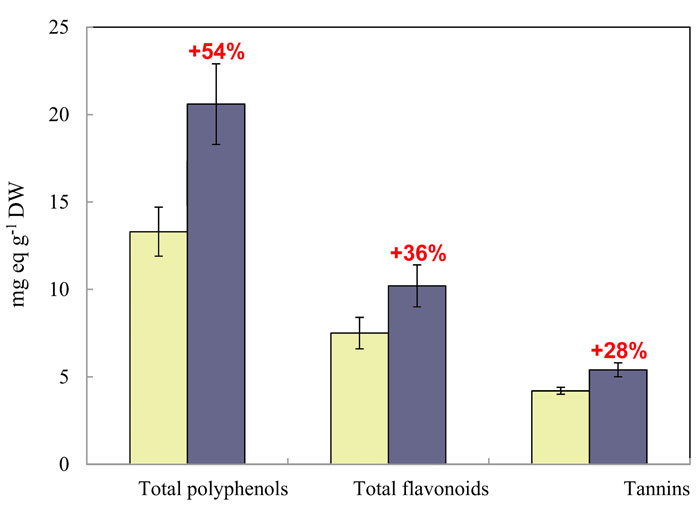| Tweet | Follow @co2science |
Paper Reviewed
Aydi, S.S., Aydi, S., Kolsi, R.B.A., Haddeji, N., Rahmani, R., Ktari, N. and Bouajila, J. 2020. CO2 enrichment: Enhancing antioxidant, antibacterial and anticancer activities in Arthrospira platensis. Food Bioscience 35: 100575.
Arthrospira platensis is a small blue-green algae found in mineral-rich alkaline waters. According to Aydi et al. (2020), this spiral-coil shaped cyanobacteria is "increasingly farmed around the world due to its many [health-related] benefits." However, little is known about how this food algae might respond to rising concentrations of atmospheric CO2, which led the Aydi et al. team of seven researchers to conduct an experiment to obtain answers.
The work focused on examining the impacts of CO2 enrichment on various phytochemical levels in A. platensis extracts, including polyphenols, flavonoids and tannins. They also investigated its effects on antioxidant, anti-bacterial and cytotoxic activities.
Results of the study revealed that elevated CO2 enhanced total polyphenols, total flavonoids and tannins by 54%, 36% and 28%, respectively (see Figure 1). This occurred because "with higher atmospheric CO2, the increases of carbon to nitrogen ratio induces the synthesis of secondary metabolites by carbon allocation to the secondary metabolism." Additionally, Aydi et al. report elevated CO2 stimulated polyphenols containing different bioactivities, "including anti-inflammatory, antiviral, antioxidant, antithrombotic, vasodilatory, and anticarcinogenic properties." With respect to anticarcinogenic properties, they say A. platensis methanolic extracts cultivated under elevated CO2 "showed the strongest cytotoxic activities toward cancer cells," revealing a heightened ability to "inhibit proliferation of human colon (HCT-116), breast (MCF-7) and ovarian (OVCAR) cancers." With respect to antibacterial benefits, the authors report A. platensis methanolic extracts from the CO2-enriched medium enhanced defenses against Salmonella enterica, Escherichia coli, and Klebisella pneumoniae.
In commenting on these key health-related findings, Aydi et al. write "the search is in progress to find new safe and effective antioxidants for use in foods and pharmaceutical preparations to replace synthetics." And with this experiment, it looks like they are certainly on to something!

Figure 1. Phytochemical composition extract of A. platensis grown in control (without CO2 added; yellow shading) or CO2 enriched (blue shading) medium. Results are mean of triplicate determinations ± S.D. The red text indicates the percentage enhancement in the three extracts due to CO2 enrichment, all of which increases are statistically significant at p < 0.05. Source: Aydi et al. (2020).




